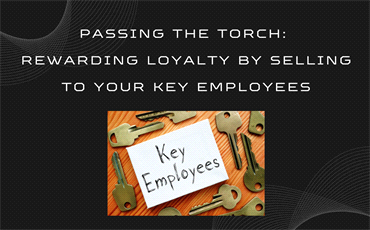How Much Should A Small Business Owner Pay Themselves?
Many business owners overlook the importance of paying themselves
How Much Should a Small Business Owner Pay Themselves?
Running a small business presents a lot of financial challenges.
As an entrepreneur, you'll likely face many financial obligations, including paying bills, planning monthly budgets, making investment decisions, etc. One area, however, that many business owners overlook is paying themselves.
Did you know that 51% of small business owners pay themselves a salary? Or that 15% of entrepreneurs require a second job to make ends meet?
Experts recommend that small business owners pay themselves—either a monthly salary or an owner's draw. But how much should you pay yourself?
It can be a tough number to pin down—too much, and you'll compromise your company's financial health, too little, and you'll struggle to make ends meet.
If you're having difficulty determining how much to pay yourself, keep reading. This article will expound on the factors to consider when paying yourself and give you insights into when not to pay yourself.
Why It Matters to Pay Yourself as a Small Business Owner
As a small business owner, paying yourself might seem like a bad idea, especially if your business isn't performing well financially.
But experts recommend paying yourself first.
Here are the two key reasons why compensating yourself is critical for your company.
1. For Accurate Bookkeeping
Employee/owner salary represents a huge, deductible expense in a company's financial statement. So, if you're not allocating funds for your salary, your books won't accurately represent your company's financial health.
2. For Tax Benefits
Tax relief is another reason why paying yourself is crucial.
Depending on the structure of your company, you may qualify for a tax break if your salary is paid out of the company's net profit.
Tip: You should only pay yourself out of profits—not your revenue.
When Can You Start Paying Yourself?
When your business is not doing well financially, the business owner's salary should always be the last priority on the budget.
But as your business stabilizes, paying yourself becomes more feasible. To determine whether you're ready to start paying yourself, ask yourself these questions.
- How is my business performing financially?
- Is the revenue collected sufficient to meet the current financial obligations—i.e., pay vendors, bills, etc.?
- Do I have steady projected revenue?
If you can answer 'Yes' to the last two questions, you can afford to pay yourself.
If not, you might want to hold on paying yourself until later when your business is performing well.
Ways to Pay Yourself
Business owners can get paid through a salary or an owner's draw.
1. Salary
With the salary method, you regularly receive a set salary just like any other employee.
Federal and state personal income taxes are automatically deducted from your salary. This is legally required for businesses that are structured as C-Corporation, S-Corporation, or an LLC taxed as a corporation.
On the bright side, earning a monthly salary provides proof of income, which can come in handy when applying for a mortgage or anything else-credit-related.
2. The Draw Method
Also known as owner's draw, this method is when a business owner takes money out of business for personal use.
It's the voluntary withdrawal of money from a business by the business owner to pay themselves. Assuming there are no co-owners, you're free to write yourself a check of whatever amount you deem necessary, based on your profit.
Draws can be a fixed amount paid regularly or can be taken on as situations demand. This payment method is ideal for sole proprietorships and partnerships. On the downside, the draw method requires more personal tax planning.
How to Decide How Much to Pay Yourself
Consider these factors when determining how much to pay yourself.
1. Business Structure
Your business structure determines whether you can take a monthly salary on an owner's draw. Do you run an LLC, a C-Corp, S-Corp, partnership, or a sole proprietorship?
Typically, if your business is a corporation or an LLC taxed as a corporation, you can take a salary and benefit from tax breaks. But if you run a sole proprietorship, partnership, or an LLC, you can take an owner's draw.
2. Business Stage
Many business owners don't take money in the startup and growth stages of a business.
But as soon as your business starts generating positive cash flows or is stable financially, consider paying yourself a salary. Doing so will also give you accurate insights into your business's operating expenses and financial health.
3. Forecasted Business Conditions
Before paying yourself, it's important to prepare a cash flow statement.
Do you have pending projects that will generate more revenue for the business in the future? What are your demand forecasts for the next few months?
If there are positive prospects for revenue generation in the near future, paying yourself becomes feasible. But if future demand and cash flows remain uncertain, paying yourself might strain your company's finances, forcing you to cut operational expenses, which isn't good for business.
How Much Salary Should You Pay Yourself?
Now that you know the options for paying yourself and the factors to consider before paying yourself, you face the big question: How much?
Or simply put, "what percentage of the profit should go towards paying myself.?"
The truth is, there is no one-size-fits-all formula for calculating what the business owner should receive as salary.
Committing to percentage-based formulas without considering the unique business circumstances can cause financial imbalances. Rather than paying yourself based on rigid rules, think of a holistic approach that addresses all your business needs.
For instance, the average American entrepreneur earns a median salary of $68,000. Rather than taking a percentage of this amount as your salary, you should first ensure all the business financial obligations are met.
If you're taking an owner's draw, you should do so after deducting all the business expenses, including paying bills, vendors, employees, debts, etc. This ensures paying yourself will not cripple your business in any way.
In Summary
There are many advantages to running a business.
However, a major decision is how much to pay yourself as a small business owner. Compensating yourself is important for your business because it helps you maintain accurate financial records and gives you some tax advantages.
But it can be hard to determine how much funds to allocate to your salary. Experts recommend you adopt a holistic approach that addresses all your business needs before taking your cut from the net profit.
Recent articles for you
Larry Goldstein of First Choice Business Brokers
License: NV RE S.0188852
Permit: Business Broker Permit BUSB.0007059
Navigation Links
Want to receive new business listing alerts by email?
The World's Authority in Business Sales
© 2023 Larry Goldstein of First Choice Business Brokers | Each office is independently owned and operated. Privacy Policy






